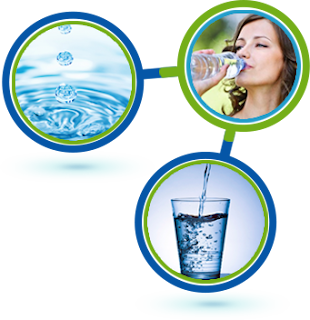Decode the Term Ultrafiltration and the ultrafiltration process involved in treating Wastewater?
In wastewater treatment, ultrafiltration (UF) systems are utilized to recycle and reuse water that contains no physical solids.
Ultrafiltration definition, applications and enterprises utilizing these procedure units are secured underneath.
Ultrafiltration (UF) is an assortment of film filtration in which forces like pressure or concentrations inclinations lead to a partition through a semipermeable layer. Suspended solids and solutes of high sub-atomic weight are held in the purported retentate, while water and low sub-atomic weight solutes go through the layer in the pervade.
Uses of ultrafiltration
UF can be utilized for the expulsion of particulates and macromolecules from crude water, to create consumable water. It has been utilized to either supplant existing optional (coagulation, flocculation, sedimentation) and tertiary filtration (sand filtration and chlorination) frameworks utilized in water-treatment plants or as independent frameworks in confined areas with developing populaces. While treating water with high suspended solids, UF is regularly incorporated into the procedure, utilizing essential (screening, buoyancy, and filtration) and some optional medicines as pre-treatment stages. Ultrafiltration forms are favored over customary treatment strategies for the accompanying reasons:
1. No synthetics required (besides cleaning)
2. Conservative plant measure
3. Fit for surpassing administrative guidelines of water quality, accomplishing 90-100% pathogen expulsion.
At the point when water reusing is simple, it frequently needs next to no handling. Be that as it may, when increasingly concentrated handling is required, the industry standard techniques incorporate utilizing UF, which is intended to expel physical solids from water by going it through a semi-penetrable film. Utilizing ultrafiltration, solids are basically caught by the channel and disposed of.
Reused water can likewise be utilized for various mechanical purposes, including kettle or cooling tower feed water supplementation, pH change, washing hardware, hardstands and vehicles, fire insurance, process wash water or preparing water for creation lines in assembling enterprises, toilet flushing, dust control, development exercises, and concrete mixing.
Reusing benefits
Notwithstanding giving a reliable, privately controlled water supply, water reusing gives huge natural advantages. By giving an extra wellspring of water, water reusing offers approaches to diminish the preoccupation of water from crucial, touchy environments, hence guaranteeing that adequate water streams to plant, untamed life, and fish natural surroundings—enabling them to live and duplicate. The absence of sufficient stream, because of redirection for farming, urban, and mechanical purposes can cause weakening of both water quality and biological community wellbeing. Water clients can satisfy their requests by utilizing reused water, which can free generous measures of water for the earth. Other ecological advantages incorporate a decrease in wastewater releases and lessening or keeping the potential for contamination.
Reused water can save energy.
As the interest for water builds, more water is extricated, treated, and transported, now and then over extraordinary separations, which can require a great deal of vitality. Additionally, if the nearby wellspring of water is groundwater, as more water is evacuated, the water level drops, which thus builds vitality expected to siphon the water to the surface. Reusing water nearby or adjacent diminishes the vitality expected to move water longer separations or to siphon water from profound inside an aquifer.
Fitting water quality to a particular water use likewise lessens the energy expected to treat water. The water quality required to flush a latrine is less stringent than the water quality required for drinking water and requires less vitality to accomplish. Utilizing reused water that is of lower quality for utilization that doesn't require amazing water spares vitality and cash by diminishing water or wastewater treatment prerequisites.
Ultrafiltration is utilized in specific ventures to oblige reuse. In this manner, cost legitimization for ultrafiltration can incorporate introductory capital venture, film fouling and substitution costs and furthermore extra pretreatment of feed water to avert unreasonable harm to the layers in the Ultrafiltration Units. A portion of the advantages, notwithstanding, stay increasingly immaterial.
Ventures utilizing ultrafiltration
Ventures that devour huge volumes of water or release exceedingly lethal gushing are a possibility to utilize ultrafiltration for water reuse.
These incorporate the synthetic concoctions, steel, plastics and pitches, paper and mash, pharmaceutical and the sustenance and refreshment enterprises, including soda pops and canned nourishments, just as power, water, and wastewater treatment plants and others.
Ultrafiltration is utilized to reuse stream or increase the value of later items and that's just the beginning. Much of the time ultrafiltration (UF) is utilized for prefiltration in turn around assimilation plants to secure the reverse osmosis process. Ultrafiltration is a viable method for lessening the residue thickness file of water and expelling particulates that can foul reverse osmosis membranes.
Ultrafiltration is much of the time used to pretreat surface water, seawater and organically treated city water upstream of the reverse osmosis unit.

Comments
Post a Comment